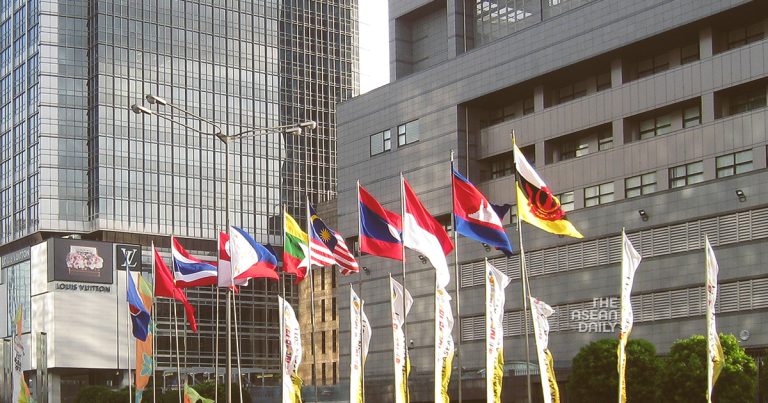2-4-2024 (SINGAPORE) In a notable shift in regional sentiment, China has narrowly surpassed the United States as Southeast Asia’s preferred superpower, according to a survey conducted by the ISEAS-Yusof Ishak Institute and published in its “The State Of Southeast Asia 2024” report on April 2.
The findings, which polled 1,994 respondents across the 10 ASEAN nations, revealed that 50.5 percent indicated a preference for China, while 49.5 percent selected the United States when presented with a hypothetical scenario of having to align with either major power.
This marks a significant departure from the previous four surveys, where respondents had consistently leaned towards the US as their preferred choice.
The annual survey, first conducted in 2019, aims to capture the prevailing attitudes and perspectives of individuals in positions to inform or influence policy on regional issues, including those from academia, think tanks, businesses, civil society, media, and international organizations, as well as government officials.
Respondents were carefully screened based on criteria such as nationality, age, affiliation, education, knowledge of ASEAN, and interest in current affairs, with the option to participate in one of six languages: English, Bahasa Indonesia, Burmese, Khmer, Thai, and Vietnamese.
While China continues to be perceived as the most influential economic power in Southeast Asia, followed by ASEAN and the US, concerns persist regarding its growing regional political and strategic influence, with 73.5 percent of respondents expressing unease – an increase from 68.5 percent in 2023.
Confidence in the US has also waned, with nearly 60 percent of respondents concerned about its growing strategic and political influence in the region, up from over 40 percent in 2023. The ISEAS-Yusof Ishak Institute attributes this trend, in part, to the escalating rivalry between China and the US.
On the issue of trust in major powers, the level of distrust in China crept up in the 2024 survey, with slightly over half the respondents indicating either “little confidence” or “no confidence” that Beijing would act in the best interests of global peace, security, prosperity, and governance. This represents a slight increase from 49.8 percent in 2023.
Among those distrustful of China, 45.5 percent believe its economic and military might could be used to threaten their countries’ interests and sovereignty – a sentiment shared by more than a third of Singaporean respondents.
Levels of distrust towards China were higher than levels of trust in all ASEAN countries except Laos, with respondents from the Philippines, which has had a series of maritime disputes with China in the South China Sea, recording the highest level of distrust.
In contrast, Japan continues to be the region’s most trusted power, with 58.9 percent of respondents expressing confidence in the country, followed by the US at 42.2 percent, the European Union at 41.5 percent, China at 24.8 percent, and India at 24.2 percent.
While more respondents indicated trust towards the US than distrust, the findings show a significant drop in trust from more than half of the respondents in 2023, potentially signaling a cautious approach ahead of the US presidential election in November.
Negative sentiment towards the Joe Biden administration’s engagement with the region has also risen, with more than one-third of respondents feeling that US engagement has decreased or decreased significantly in 2024.
Looking ahead, more than half of the respondents anticipate an improvement in China’s relations with the ASEAN bloc over the next three years, though a notable concern among those anticipating closer ties is China’s growing economic dominance and political influence in their countries.
For Singaporean respondents, the top concerns were China’s potential use of economic tools and tourism to punish the Republic’s foreign policy choices, as well as interference in domestic affairs, including through social media and influence over the ethnic Chinese community.
Amid escalating tensions between the US and China, bolstering ASEAN’s resilience and unity continues to be the most popular option among respondents to counter pressure from both superpowers, closely followed by adhering to the bloc’s traditional stance of not siding with either nation, though support for the latter has slid marginally.
Commenting on the findings, ISEAS-Yusof Ishak Institute Director and Chief Executive Choi Shing Kwok stated: “The results reflect heightened regional concerns over economic issues and the risk that unrestrained geopolitical rivalry can adversely affect the region’s interests in the short to medium term.”
However, Choi added that the region remains hopeful that major powers can cooperate on issues of mutual benefit and welcomes greater engagement with ASEAN from other global players.
As the tug-of-war between China and the US intensifies, Southeast Asia finds itself at a pivotal juncture, carefully navigating the shifting geopolitical landscape while striving to safeguard its own interests and autonomy in an increasingly polarized global order.




